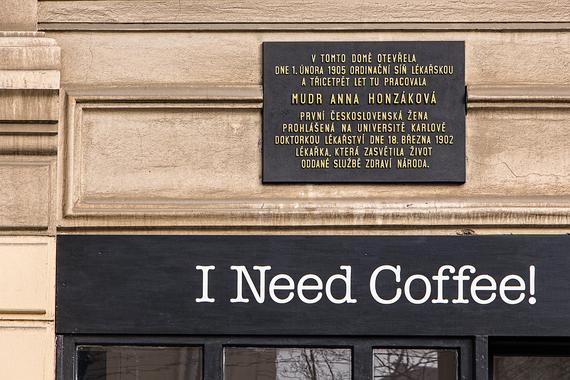
"I Need Coffee" is a monthly column on Huffington Post Books. INC (and yes, the initialism is deliberate) covers all sorts of writing topics, with an eye toward how to make a living writing. INC's audience includes both authors and aspiring authors, and authors who are both mainstream and independent.
Note: A version of this column first appeared in Underground Book Reviews, an online magazine run by indie authors who are passionate about writing. They publish articles about the world of independent literature, reviews of independent literature, and more.
In June of 2015, my novel Entanglement was published by a boutique press (i.e., non-big-five and non-Amazon). Before the novel's publication, I arranged readings at local bookstores. The bookstore owners were really supportive, and I had 4 or 5 readings set up. But all of the stores required me to consign books.
What consigning means is this: a bookstore won't order my books from Ingram, the large book distributor that distributes my books. This is because my books are tagged as "Non-returnable" in the Ingram system. The "non-returnable" tag means that the bookstore can't return copies that they're unable to sell, like they would (presumably) be able to do with books published by big houses. I can understand the position of both my small publisher and the small bookstore. The bookstore can't take a financial risk stocking a product that it might not be able to sell. The publisher can't take a financial risk producing stock that might only be returned en masse.
The author, though, gets caught in the middle.
In this situation, an author normally uses her author's discount code to purchase copies from the publisher and consigns those books with the bookstores. I know this is what authors normally do because I asked all of my author friends what they do, and I asked my publisher.
So, you (and I), may think: consign away! No big deal. Purchase copies at your author rate, and then take your 60/40 or 70/30 split with the store. (Authors get the bigger split.)
Here's the problem, though. Not a single one of these sales will count toward my novel's sales numbers. The sales don't count because I, the author, purchased the books from my publisher. Even if a bookstore sells those particular books to readers, the sales don't count toward my sales numbers.
And as you may or may not know, authors live and die by our sales numbers. Let's say I go on a tour around the state to 20 bookshops. Let's say, and I know this is crazy, but let's say I sell 50 copies of my book at each tour stop. That's 1000 copies that don't count toward my sales numbers.
That's terrible.
In an attempt to avoid terrible, I sat down with a glass of wine and stewed on this information. I was super annoyed. Small presses are living closer to the bone than the big houses. And yet here is one more way that the deck is stacked against small presses (and self-published indie writers, who encounter the same problem).
Stores won't stock small press and indie books unless we schlep a box of books over and ask them to consign. And they won't consign unless we're able to convince them that the books are actually worth taking up precious floor space. Like I said, however, I'm sympathetic to the bookseller's position.
But to do all of that work and to still not have the sales count toward sales numbers? Unacceptable.
I don't mind schlepping my books around. I don't mind befriending bookstore owners and delivering a sales pitch. That's just part of an author's job. I do mind all that work not counting.
I decided that there's no reason that I can't order my own books from the distributor in a fashion that does count toward my sales numbers. Then I can take those books, the books I directly ordered, to bookstores who wish to consign.
I logged onto Ingram's website and started going through the process of becoming an Ingram retailer: a person who can order books straight from the distributor. I wanted to be able to look up books in their online catalog, to place an order, and to have those books delivered to my doorstep, just as though I were a bookstore. How do they know I'm not a bookstore? After all, I am incorporated, as I talked about in my last INC column. Plus, according to Ingram's own information, you don't even have to be a bookstore.
The entire time I was filling out the online forms, I doubted this Hail Mary play (and it felt like a Hail Mary play) was going to work. And then, a few days later, I received my login credentials via email, and permission to order up to $2,500 worth of books at a time. (HA. HA.) I quickly logged in and ordered copies of my novel to have on hand for my readings coming up in a couple of weeks, not knowing how long it would take them to arrive. Two days later, the boxes were on my doorstep.
I have to keep track of some business details, like collecting sales tax agreements from stores (since they will be collecting sales tax, not me), but once I had my method down, it was easy. And all those books that I hope will sell at my readings, along with the books I give away as gifts and in contests, will count toward my sales numbers, now.
A version of this column first appeared in Underground Book Reviews. To sign up for Katie's monthly newsletter, Writing Isn't Sexy, and get free books and writing tips, click here: bit.ly/pryalnews.

